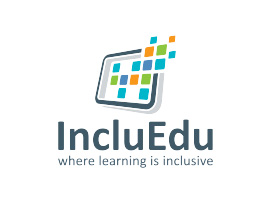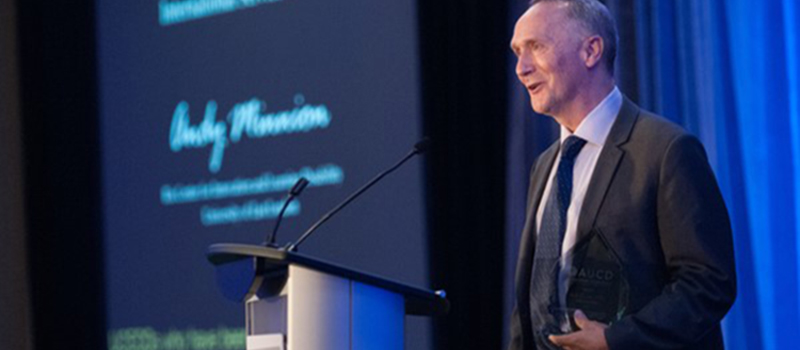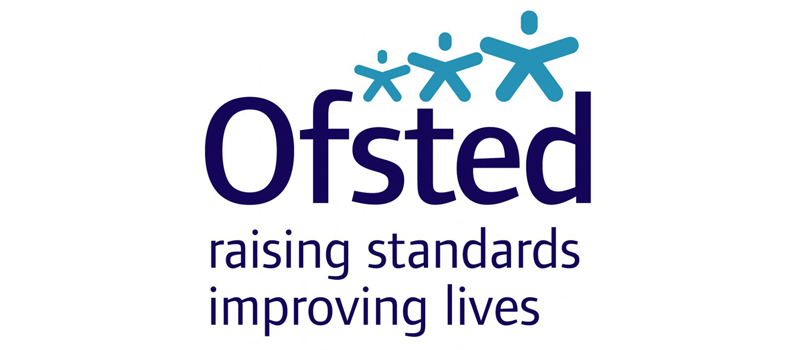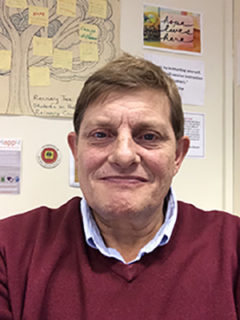
Waldo Roeg is a CNWL Peer Recovery Trainer and an author of the Health and Wellbeing Plan. Two years ago he was invited to be a part of a pilot project which sought to bring multimedia into the trust as a form of self-advocacy.
“I have used services for 30 years and I know what it’s like to feel as if you don’t have a voice,” he says “but when I was first shown the Wiki I immediately saw it as a fantastic tool that could be used to help advocate for individuals like myself.”
Since the Wiki’s introduction into the recovery college Waldo has worked alongside Rix to create a Health and Wellbeing plan Wiki.
“I have worked in films for a long time and I love storytelling. I love images and I think they are such a brilliant way of communicating our needs, our loves, and our desires. So to find a tool that is a natural fit with that is really exciting.”
Waldo himself has been developing his own Wiki Health and Wellbeing plan and really enjoys the media aspect of the Wiki.
“We use photographs to capture those important moments in our lives and to connect with not just those moments but with things that are important to us. This element of the Wiki has played a huge part in my rediscovering of my own value which had been lost to a certain degree.”
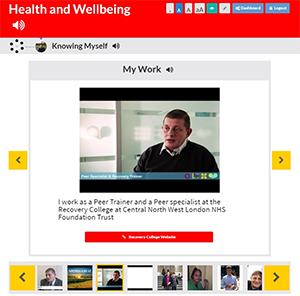
Unlike the paper plan, the Wiki changes an important element: the focus on the positive over the negative.
“It is a really fantastic vehicle for celebrating a person’s strengths rather than always focusing on the negative and that is of great value within mental health services”
says Waldo. He describes it as a “great vehicle for discussion.” The use of a Health and Wellbeing Plan Wiki is completely voluntary and is owned by the individual.
“Some people will chose not to engage in technology and they are welcome to create their plan however they would like, but there will also be people who will find the Wiki a really great way of actually having a voice that they may not have had before through this new multimedia tool.”
One of the biggest concerns of those considering the Wiki is technology. “I am a computer migrant,” Waldo says of his technology skills “and it took a little bit of getting used to,” but it is a small setback that once overcome can open the doors to a whole new world.
“The landscape of how we communicate, how we understand the world now is through these technological mechanisms. Nobody goes around without a mobile phone today and giving people who have been excluded from a lot of that social networking the opportunity to finally be a part of that social network, of being able to find support through the Wiki, makes a huge difference. We use technology and phones as an extension of ourselves and I think the Wiki is a fantastic opportunity to include people who have been excluded from social connectivity and enable them to have a voice.”
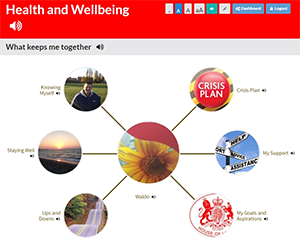 Waldo is excited to bring the Wiki to mental health services and believes that it is a
Waldo is excited to bring the Wiki to mental health services and believes that it is a
“universal tool with the capacity to serve a wide array of uses. The Wiki is pushing the boundaries of what people can and can’t do. It is pushing the boundaries of involving people in their own care and being able to advocate for themselves and what their needs are. We need to push those boundaries, be more inclusive and Wikis are the vehicle that are going to do that.”
To view case studies about other users of the Rix Wiki, please click here.


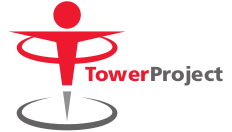 The Tower Project is a community based voluntary sector organisation and leading service provider for children and adults with a learning disability, sensory disability, autism, physical disability or health related issue.
The Tower Project is a community based voluntary sector organisation and leading service provider for children and adults with a learning disability, sensory disability, autism, physical disability or health related issue.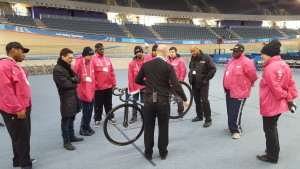 Scott Kennedy, Training and Development Manager for JETS, is using a Multimedia Advocacy approach and Rix Wikis to enable the young people he works with to showcase their work experience, their skills and aptitudes.
Scott Kennedy, Training and Development Manager for JETS, is using a Multimedia Advocacy approach and Rix Wikis to enable the young people he works with to showcase their work experience, their skills and aptitudes.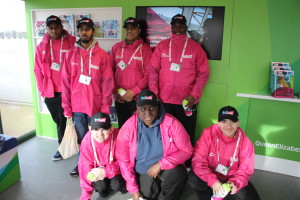 JETS is currently involved in a new project with Hackney College, helping around 10 young people gain specific work experience in three different settings over four months. They will be working at the Olympic Park in Stratford, setting up an Easter market stall in Spitalfields Market and rolling up their sleeves to get stuck in at a social enterprise which provides a valeting service for community transport vehicles.
JETS is currently involved in a new project with Hackney College, helping around 10 young people gain specific work experience in three different settings over four months. They will be working at the Olympic Park in Stratford, setting up an Easter market stall in Spitalfields Market and rolling up their sleeves to get stuck in at a social enterprise which provides a valeting service for community transport vehicles.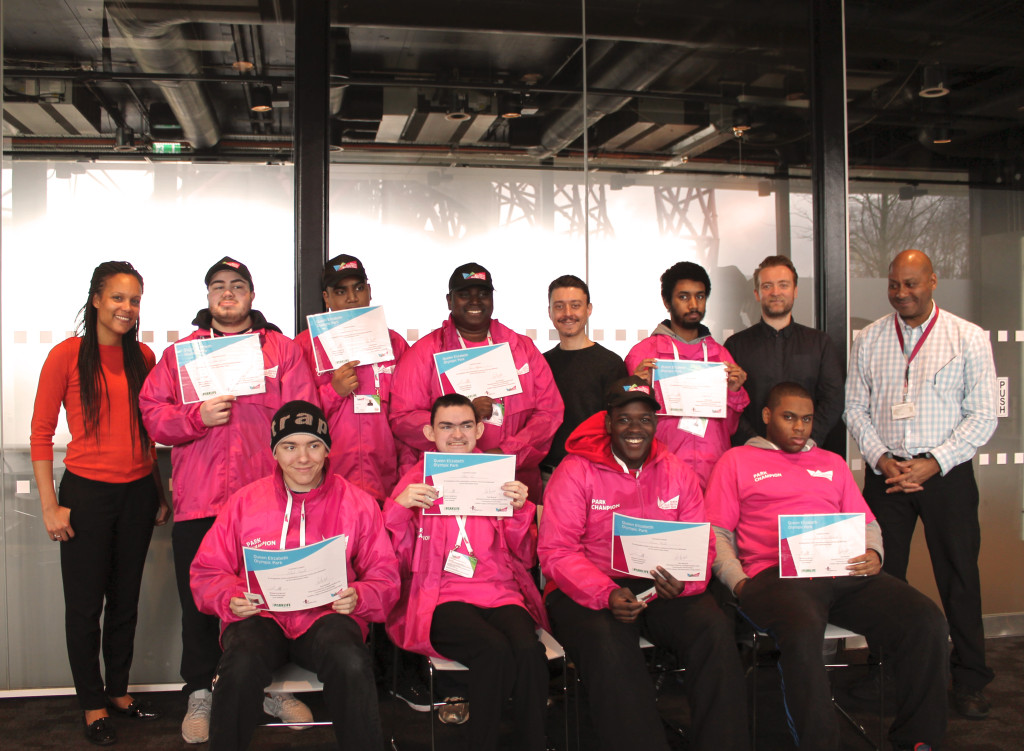
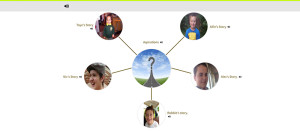 Parents very much welcome the opportunity for professionals working with their child/YP to provide video input into their Wiki; all felt by having a Wiki their child’s/YP’s EHCP could be better co-ordinated in a joined up way. For example, one child’s paediatrician provided medical information on their Wiki to aid with secondary school transition.
Parents very much welcome the opportunity for professionals working with their child/YP to provide video input into their Wiki; all felt by having a Wiki their child’s/YP’s EHCP could be better co-ordinated in a joined up way. For example, one child’s paediatrician provided medical information on their Wiki to aid with secondary school transition. Achieving for Children (AfC) is a social enterprise company set up by Kingston and Richmond Councils to provide targeted help and support to children and families in need within the two London boroughs. It has partnered with Rix Research & Media to pioneer the use of Multimedia Advocacy and the Rix Wiki tool and training to embed person-centred approaches which, it believes will be invaluable in implementing the new Education, Health and Care Plans (EHCP) for those with learning disabilities in the area.
Achieving for Children (AfC) is a social enterprise company set up by Kingston and Richmond Councils to provide targeted help and support to children and families in need within the two London boroughs. It has partnered with Rix Research & Media to pioneer the use of Multimedia Advocacy and the Rix Wiki tool and training to embed person-centred approaches which, it believes will be invaluable in implementing the new Education, Health and Care Plans (EHCP) for those with learning disabilities in the area.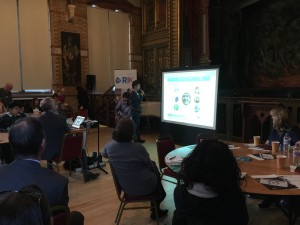 James Mannion, Business Systems Project Manager for AfC, said, “We want to empower our children and young people who face challenges because of their communications difficulties, to show how they can use Wikis to get across their preferences and viewpoints by using pictures, sounds, video and words – to give them a voice and enable them to take control of their lives. We call this multimedia advocacy.
James Mannion, Business Systems Project Manager for AfC, said, “We want to empower our children and young people who face challenges because of their communications difficulties, to show how they can use Wikis to get across their preferences and viewpoints by using pictures, sounds, video and words – to give them a voice and enable them to take control of their lives. We call this multimedia advocacy.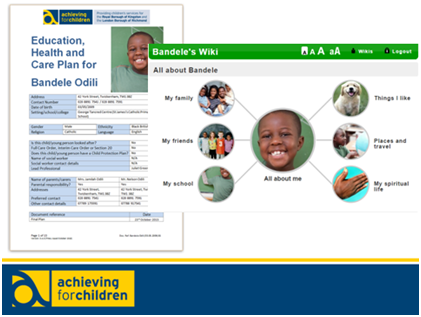 As a result of the event, there are a further four schools who want to lead the way using Multimedia Advocacy and Rix Wikis and there are also two families who want to use Wikis for their annual reviews.
As a result of the event, there are a further four schools who want to lead the way using Multimedia Advocacy and Rix Wikis and there are also two families who want to use Wikis for their annual reviews.
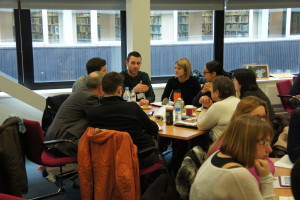
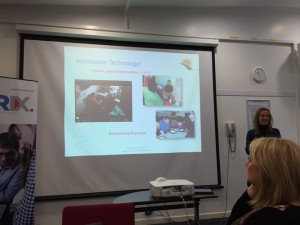 Charlton Park Academy has adopted the multimedia advocacy approach throughout the school and all 240 pupils have Rix Wikis. Kathryn Stowell, Head of Outreach and AAC, talked about her experience of helping students and staff – and parents – to understand how to use wikis to communicate and share information.
Charlton Park Academy has adopted the multimedia advocacy approach throughout the school and all 240 pupils have Rix Wikis. Kathryn Stowell, Head of Outreach and AAC, talked about her experience of helping students and staff – and parents – to understand how to use wikis to communicate and share information.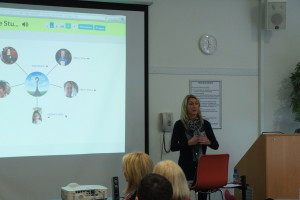
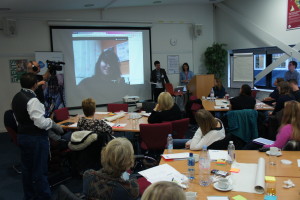
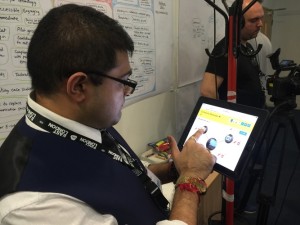 We are always keen to hear your views and opinions. Many attendees completed Feedback Forms about the event which has been very helpful – thank you to those who did so.
We are always keen to hear your views and opinions. Many attendees completed Feedback Forms about the event which has been very helpful – thank you to those who did so.